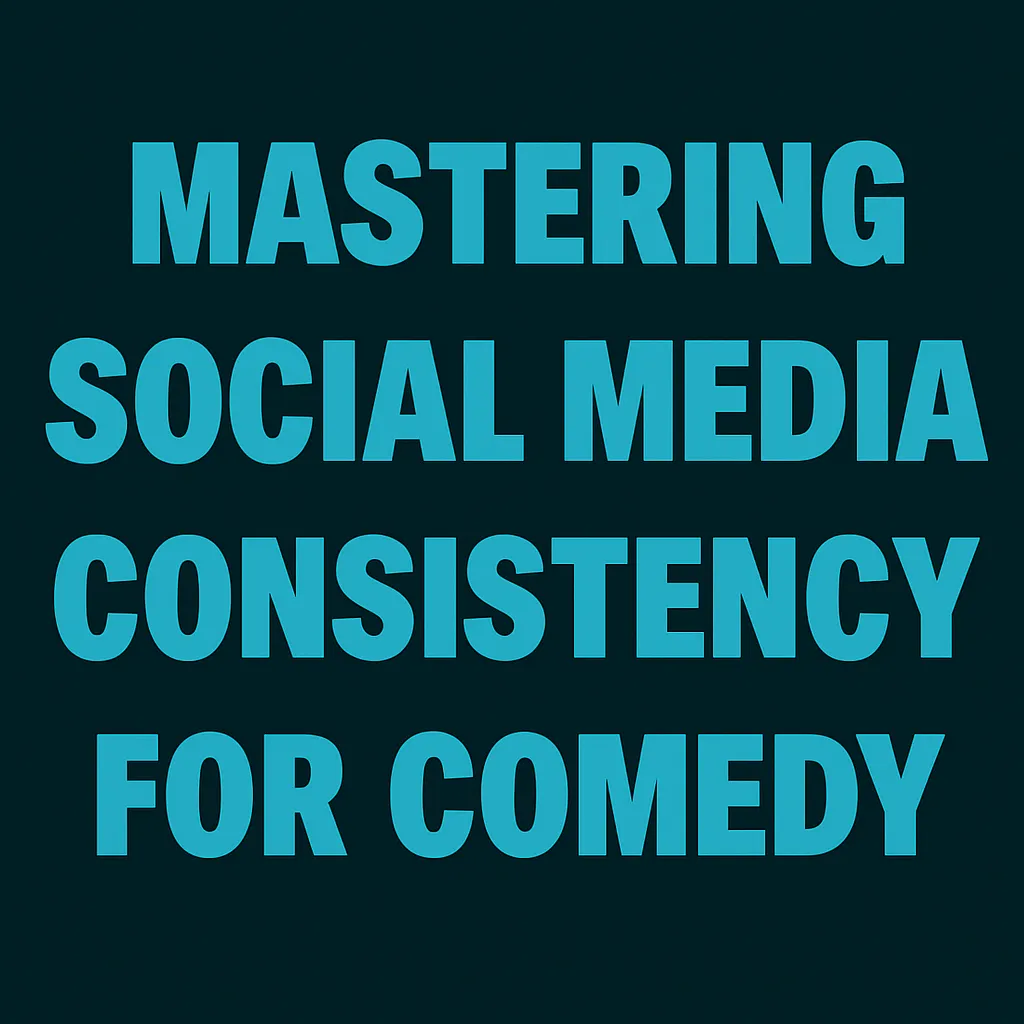
Mastering Social Media Consistency for Comedy
Mastering social media consistency for comedy
Algorithm changes happen overnight. Posting rules shift without warning. What worked last month suddenly stops working. You feel like you're always playing catch-up with platforms that keep moving the goalposts.
Most comedians give up when faced with these constant changes. They assume social media success requires keeping up with every tiny update. That's not true at all.
The comedians who thrive focus on principles that don't change. They build systems that work regardless of algorithm updates. They understand the deeper patterns that stay consistent across all platforms.
Why consistency beats perfect timing
Most people think social media success comes from posting at exactly the right moment. They obsess over optimal times and perfect hashtags. Meanwhile, they post sporadically and wonder why nothing grows. Wrong focus entirely.
Consistency beats perfection every time. Your audience needs to know when to expect new content from you. Algorithms favor accounts that post regularly. Building momentum requires showing up repeatedly, not just showing up perfectly.
Here's what happens when you nail consistency:
Your followers develop habits around consuming your content.
Platform algorithms start promoting your posts to more people.
Your content creation skills improve through regular practice.
Opportunities multiply because people know you're reliable.
Your audience grows steadily instead of in random spurts.
Industry professionals notice accounts that maintain regular activity.
Simple systems that handle algorithm changes
Every platform wants to keep users engaged longer. That core goal never changes, even when specific features do. Understanding this helps you adapt quickly when updates happen. Focus on engagement principles instead of chasing every new trend.
Platform-specific patterns emerge - Each social media platform has unique characteristics that stay consistent. Twitter favors real-time conversations. Instagram rewards visual storytelling. TikTok promotes entertainment value. These patterns remain stable regardless of minor algorithm tweaks.
Engagement drives everything - All platforms prioritize content that generates genuine interactions. Comments matter more than likes. Shares matter more than views. Save rates indicate high-value content. These metrics stay important across all algorithm changes.
Content quality wins long-term - Algorithms get smarter at detecting valuable content over time. Low-effort posts get buried faster than ever. High-quality content gets rewarded more consistently. This trend continues strengthening across all major platforms.
The real challenge most comedians face
Here's what nobody talks about openly. Most comedians struggle with social media because they're using generic advice. They follow marketing tips designed for businesses selling products. Comedy promotion works completely differently.
Generic social media courses teach you to post motivational quotes and behind-the-scenes content. That approach fails miserably for comedians. Your audience wants to laugh, not get inspired by your morning routine. Comedy content requires understanding audience psychology specific to entertainment.
The comedians who succeed learned from people who actually promote comedy professionally. They understand timing patterns unique to comedy fans. They know which content formats work best for different types of jokes. They've seen what actually converts comedy viewers into loyal followers.
This specialized knowledge makes all the difference. You can spend years learning through trial and error. Or you can learn from people who've already figured out what works specifically for comedic talent. The choice determines how quickly you see real results.
Stop guessing and start growing
You've already spent enough time wondering if you're doing social media right. The learning curve exists whether you tackle it now or later.
The difference is whether you learn from proven systems or keep making expensive mistakes. One approach gets you results faster with less frustration. The other keeps you stuck in the same patterns that aren't working now.
